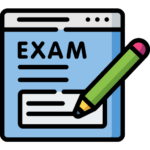| Pharmacy |
Pharmaceutics–
- Size separation
- Prescriptions
- Metrology
- Extraction and Galenicals
- Posology
- Parenteral dosage forms
- Dental and cosmetic preparations
- Emulsions
- Jellies
- Pastes
- Suspensions
- Powders
- Ointments
- Sterile Dosage forms
- Packaging of pharmaceuticals
- Sterility testing
- Suppositories and pessaries
- Study of immunological products
- Introduction to the drying process
- Clarification and Filtration
- Semi-Solid Dosage Forms
- Incompatibilities in prescriptions
- Introduction of different dosage forms
- Aseptic techniques
- Sterilization
- Mixing and Homogenization
- Biphasic Liquid Dosage Forms
- Liquid oral dosage forms
- Dispensed Medications
- Distillation
- Ophthalmic products
- Processing of Capsules
- Monophasic
- Processing of Tablets
Pharmaceutical Chemistry
- Acids, bases, and buffers,
- Antioxidants,
- Gastrointestinal agents,
- Topical Agents,
- Antimicrobials and Astringents,
- Dental Products,
- Respiratory stimulants,
- Expectorants and Emetics,
- Antidotes,
- Major Intra and Extracellular electrolytes,
- Inorganic official compounds,
- Radiopharmaceuticals and contrast media,
- Quality control of Drugs and pharmaceuticals,
- Identification tests for cations and anions.
- Introduction to the nomenclature of organic chemical systems,
- The chemistry of pharmaceutical organic compounds (Antiseptics and Disinfectants, Sulphonamides, Antileprotic Drugs, Antitubercular Drugs, Antiamoebic, and Anthelmintic Drugs, Antibiotic, Antifungal agent, Antimalarial Drugs, Tranquilizers, Hypnotics, General, Anesthetics, Antidepressant Drugs, Adrenergic drugs, Adrenergic antagonist, Cholinergic Antagonists, Antidiuretitic Drugs, Cardiovascular Drugs)
- cardiac glycosides,
- Hypoglycemia Agents,
- Non-steroidal anti-inflammatory agents,
- Anticonvulsants,
- Coagulants and Anticoagulants,
- Antiarrhythmic,
- Diagnostic Agents,
- Antihypertensives & Vitamins,
- Anti-Neoplastic Drugs
- Analgesics and Antipyretics,
- Steroidal Drugs,
- Local Anesthetics,
Pharmacognosy
- Definition,
- history and scope of Pharmacognosy
- volatile oils,
- Adulteration and drug evaluation,
- Occurrence,
- organoleptic evaluation,
- distribution,
- Various systems of classification of drugs and natural origin,
- A brief outline of alkaloids,
- Pharmaceutical aids,
- chemical constituents including tests wherever applicable and therapeutic efficacy of various drugs
- tannins and resins,
- glycosides,
- terpenoids,
- Miscellaneous drugs.
Biochemistry & Clinical Pathology:-
- Introduction to biochemistry,
- Erythrocytes.
- Therapeutics,
- Vitamins,
- Introduction to Pathology of blood and urine.
- Human Anatomy & Physiology
- Carbohydrates,
- Enzymes,
- Scope of Anatomy and physiology,
- Lymphocytes and platelets, their role in health and disease
- Lipids,
- Elementary tissues,
- Skeletal System,
- Cardiovascular System,
- Respiratory system,
- Urinary System,
- Muscular System,
- Central Nervous System,
- Sensory Organs,
- Digestive System,
- Endocrine System,
- Reproductive system.
Health Education & community pharmacy
- Concept of health,
- Sexually transmitted diseases,
- Surface infection,
- Epidemiology.
- First aid, Environment, and health,
- Nutrition and health,
- Respiratory infections,
- Communicable diseases,
- Non-communicable diseases,
- Intestinal infection,
- Fundamental principles of microbiology,
- Arthropod-borne infections,
Pharmacology & Toxicology
- Introduction to pharmacology,
- Routes of administration of drugs,
- General mechanism of drugs action,
- Drugs acting on the central Nervous system,
- Drugs acting on the respiratory system,
- Autacoids,
- Cardiovascular drugs,
- Drugs affecting renal function,
- Hormones and hormone antagonists,
- Drugs acting on the digestive system,
- Chemotherapy of microbial diseases,
- Disinfectants and antiseptics.
Pharmaceutical Jurisprudence
- Origin and nature of pharmaceutical legislation in India,
- The Drugs and Magic Remedies (objectionable Advertisement) Act, 1954,
- Medicinal and Toilet preparations (e ExciseDuties) Act, 1955(as amended to date).
- Poisons Act 1919 (as amended to date)
- Narcotic Drugs and psychotropic substances Act, 1985,
- Medical Termination of Pregnancy Act, 1971(as amended to date).
- The Drugs and Cosmetics Act, 1940,
- Principles and significance of Professional Ethics,
- Latest Drugs (price control) order in force.
- Pharmacy Act, 1948,
Drug store and Business Management :
- Part-I Commerce
- Introduction,
- Sales,
- Recruitment,
- training,
- Banking and Finance.
- Drug House Management,
- Part-II: Accountancy –
- Introduction to the accounting concepts and conventions.
- cashbook,
- general ledger and trial balance,
- different kinds of accounts,
- profit and loss account, and balance sheet.
- Introduction budgeting.
- Double-entry bookkeeping,
- Simple techniques of analyzing financial statements.
Hospital & Clinical Pharmacy :
- Part-I: Hospital Pharmacy–
- Hospital and Hospital Pharmacy,
- Manufacturing,
- Sterile manufacture,
- P.T.C.(Pharmacy Therapeutic Committee),
- Surgical dressing,
- Non-sterile manufacture,
- Application of computers.
- Hospital Formular System,
- The drug Distribution system in Hospitals,
- Drug Information Service
- Part II: Clinical Pharmacy-
- Introduction to Clinical pharmacy practice,
- Drug Interactions,
- Physiological parameters with their significance.
- Drugs in Clinical Toxicity,
- Bio-availability of drugs.
- Adverse Drug Reaction,
- Disease, manifestation anpathophysiologygy,
- Modern dispensing aspects,
- Drug dependences,
- Common daily terminology used in the practice of medicine.
|









